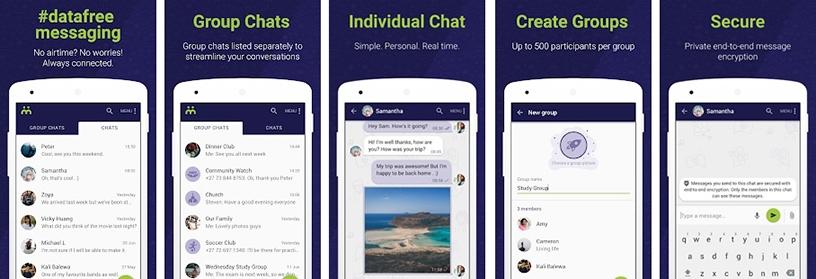
Locally developed messaging app, Moya Messenger, has launched in South Africa, and offers its users the option to keep on texting, even after they have run out of mobile data and airtime.
The app was developed in South Africa by biNu. It provides a similar messaging experience to Facebook-owned WhatsApp, but lets users communicate without incurring data costs across all four major mobile networks.
"We are profoundly motivated by the positive social impact of enabling ubiquitous #datafree mobile messaging, developed in Africa, for Africans," says Gour Lentell, CEO of biNu.
"We do it by utilising telco reverse billing which allows us to pay mobile messaging data costs."
BiNu has reverse billing agreements with MTN, Vodacom, Cell C and Telkom, and has built a technology platform that enables partners and customers to make their apps and Web sites data-free for end-users.
"Despite a multimillion-dollar marketing budget, WeChat struggled to gain a foothold in the South African market largely because the incumbent network effect of WhatsApp proved too competitive to overcome. But we definitely see a place for a challenger like Moya where the data-cost barrier of mobile messaging is removed completely for South African consumers, particularly in an era of #DataMustFall and increasing pressure on consumer incomes," says Lentell.
The app offers unlimited texting, group chat, end-to-end security with automatic encryption of all messages, and automatic contact discovery that allows users to connect with others also using the Moya app.
The only messages that will incur data costs are those that have media attachments like photos, videos, voice notes and documents. Moya users will be pre-emptively warned when they will incur mobile data costs, or need to switch to WiFi to send media files.
The company commercial model will be to target businesses that want to communicate with audiences at scale, without a cost implication for their users, members and customers.
"We see opportunities for organisations to benefit from a data-free platform; for example, financial institutions delivering customer support and document exchange; trade unions and political parties wanting to communicate with their members; government agencies to disseminate information and implement service delivery; NGOs for reaching target communities; and the FMCG sector to reach their audiences," says Lentell.
"It's counter-productive for organisations to try and engage their customers and mobile audiences on other messaging platforms, when they have no airtime available," says Lentell.
The company says a core standard that will be applied rigorously to Moya is that all business communication will be on a consumer opt-in basis only.
Moya Messenger is currently only available to Android users and can be downloaded via the Google Play Store.
Share